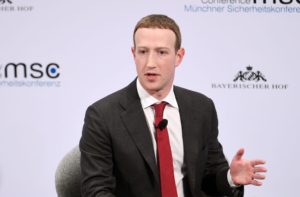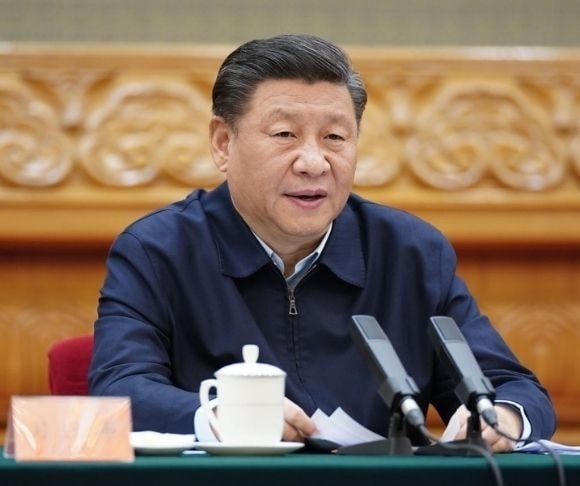A new book by investigative reporter Peter Schweizer, titled Red-Handed, shows a Silicon Valley thoroughly dominated by the shadow of communist China, with grave national security implications for the United States. The Asian superpower’s influence over Big Tech may be well known, but the author reveals a relationship far tighter than most Americans believed:
“Blinded by their ambition, Silicon Valley elites are helping Communist China achieve their ultimate goal: ‘Technology supremacy’ over the West.
“‘Science and technology is a national weapon,’ President Xi Jinping has said. ‘We should seize the commanding heights of technological competition and future development.’
“To accomplish this goal, Beijing has created ‘civilian-military fusion,’ which means any technological advance in the civilian market must be applied directly to the military sphere. And they have effectively courted and seduced many powerful people in America’s tech industry to willingly, and sometimes enthusiastically, play along.”
The author describes the seduction process among the top names in Big Tech. Facebook co-founder Mark Zuckerberg was so enamored of China that when he met Xi at a White House gathering in 2015 “he made an unusual request: would the communist dictator give his child his Chinese name?” Schweizer relates. “Xi, understandably surprised by the request, declined, saying it was ‘too great a responsibility.’”
Linking China Up With the Mainland

Mark Zuckerberg (Photo by Tobias Hase/picture alliance via Getty Images)
He then details how Zuckerberg was sucked further into China’s orbit in proceeding years. The relationship developed to the point where Facebook “teamed with Google in 2016 to build an undersea cable that would link San Francisco with Hong Kong, China, and other locations in Asia. The so-called Pacific Light Cable Network would provide better internet and data services to their customers in Asia. But the two American tech superpowers chose to partner with a Chinese company called Dr. Peng Telecom & Media Group to provide the link to Hong Kong.”
The security implications of the venture were apparently lost on Zuckerberg.
“Dr. Peng was financially backed by the Chinese government’s China Securities Finance Corporation, and worked closely with Huawei and military defense contractors in China. What could possibly go wrong?” Schweizer notes.
In 2020, the Federal Communications Commission blocked the operation.
“How the tech giants did not see the obvious espionage risk to their plans is a mystery. Or maybe they saw it and did not care.”
Schweizer also delivers an eye-opening rundown on the extent of Google’s canoodling with China, which includes the 2017 “opening of an [artificial intelligence] research facility in Beijing. The Google AI China Center would include “a small group of researchers supported by several hundred China-based engineers.”
“Beijing has declared that passing the United States in artificial intelligence is a ‘national priority,’” the author observes.
Reeling in a Very Big Fish
But perhaps the most interesting excerpts reveal the extent of the Chinese courtship of Tesla CEO Elon Musk.
“Musk, one of the richest men in the world, is an example of how even executives who talk tough about China can eventually fall in line,” Schweizer asserts.
Despite being angered by Beijing tariffs and the fact that “Chinese entities stole software code from his company,” Musk gradually succumbed to China wooing, he explains. It started with a state-affiliated company purchasing a five percent interest in Tesla in 2017. Soon, all barriers to opening a facility in China were abruptly removed.
“Chinese government–backed banks coughed up $1.6 billion in subsidized loans. And the regulatory red tape to build in China was eliminated by government authorities,” Schweizer notes.
Tesla was bagged.
“Musk arrived in the country for the groundbreaking ceremony and met with top-ranking officials. Two days later, he was meeting with Vice Premier Li Keqiang in the private compound reserved for high- ranking visitors,” Schweizer explains. “’I love China very much and I am willing to come here more,’ Musk reportedly told Li. The vice premier offered to make him a permanent resident in the country.”
 Publicly, Musk was certainly singing a different tune.
Publicly, Musk was certainly singing a different tune.
“Musk has since become a Beijing booster,” Schweizer reports. “In January 2021, he explained in one interview how the unelected Beijing regime was possibly ‘more responsible’ toward its people than the democratically elected U.S. government.”
Schweizer paints this as an example of how potential foreign business rivals can be turned into assets for the regime. “Some national security experts are very concerned about Beijing’s ability to leverage Musk,” he proclaims.
“Miles Yu, a professor at the U.S. Naval Academy, says that Beijing lured Tesla ‘into China with initial preferential tax and regulatory treatments,’” he writes. “’Once you are hooked in China, and have gained initial success, the CCP would not hesitate to use your investments in China as a leverage to force you to comply with a whole list of demands, outright or subtle, including sharing proprietary technologies and knowledge.’”
~ Read more from Joe Schaeffer.




